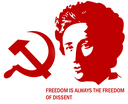Aesthetics and Politics Around the Long 1970s
An influential text in English-language critical debate from the late 1970s was New Left Books’ edition of mid-twentieth century European Marxist writing on literature translated from German, Aesthetics and Politics: Debates Between Bloch, Lukacs, Brecht, Benjamin, Adorno (London: Verso, 1977). With an Afterward by Fredric Jameson, this volume introduced the ideas of the Communist and anti-fascist 1930s to a new generation of students caught up in the social movements that arose in the West with resistance to war in Vietnam. In retrospect, however, it also signalled the beginning of a new enclosure of radical thinking in university settings that would become forcibly detached from other sites of political energy as neo-liberal policies of academic time-control locked in from the 1980s and 1990s.
In this lecture I will return to an earlier phase of experimental thinking about aesthetics and politics by the generation that saw revolutions in China (1905, 1911) and Russia (1905,1917) as well the collapse of the Second (Socialist) International (1899-1916) with the resurgence of nationalism on the outbreak of the First World War (1914-18). Such thinkers as Lenin and Gramsci wrote eloquently about artistic creativity but I argue that their reflections on the role of the political party in relation to popular mobilisation and ‘spontaneous’ mass action are also engaged with aesthetic problems that are newly pertinent today in the context of ‘occupy politics’. Emphasizing that these parties were, in fact, social movements to begin with, and drawing on recent work by Ben Highmore on “social aesthetics” as the materialist study of feeling in everyday life, my focus will be on Rosa Luxemburg (1871-1919), a Polish-Jewish socialist revolutionary and anti-imperialist who co-founded the Spartacus League (1915) that became the Communist Party of Germany (KPD) in 1919—the year that Luxemburg was murdered by government-sponsored paramilitaries and her body thrown in a canal in Berlin.
Texts to Read
Students are encouraged to be familiar with the outline of Luxemburg’s life before the lecture: https://en.wikipedia.org/wiki/Rosa_Luxemburg and https://rosaluxemburgblog.wordpress.com/2015/01/15/96-years/ are good places to start.

WRITINGS BY ROSA LUXEMBURG (1871-1919) 1. From The Letters of Rosa Luxemburg trans. George Shiver (Kindle Locations 8788-8789). Verso, 2011. Kindle Edition. [MM: Sprawa Robotnicza was a socialist magazine in Paris 1893-96)}
Highmore, Ben, 'Doing Time: Work-life', from Ordinary Life: Studies in the Everyday, Routledge, 2011: pg 86-113.
Extras
Ben Highmore, ‘Social Aesthetics’ in John R. Hall, Laura Grindstaff and Ming-Cheng Lo, eds, Handbook of Cultural Sociology (London and New York: Routledge, 2010), 155-16.
Aesthetics and Politics: Debates between Bloch, Lukacs, Brecht, Benjamin and Adorno, Trans. Ed. Ronald Taylor (London: Verso, 1977).
Antonio Gramsci, “The Modern Prince” in Selections from the Prison Notebooks ed. and trans. by Quintin Hoare and Geoffrey Nowell Smith (New York: International Publishers 1971), 123-205.
Document Actions
